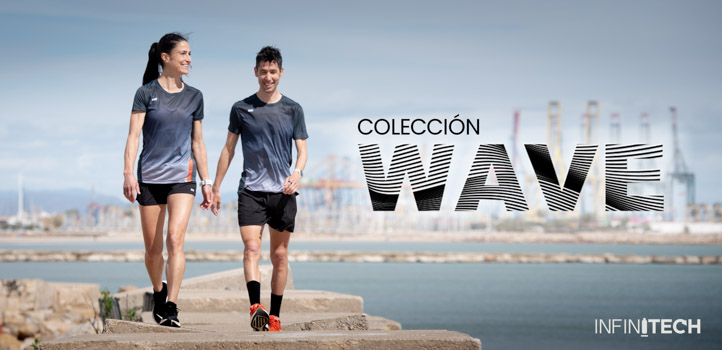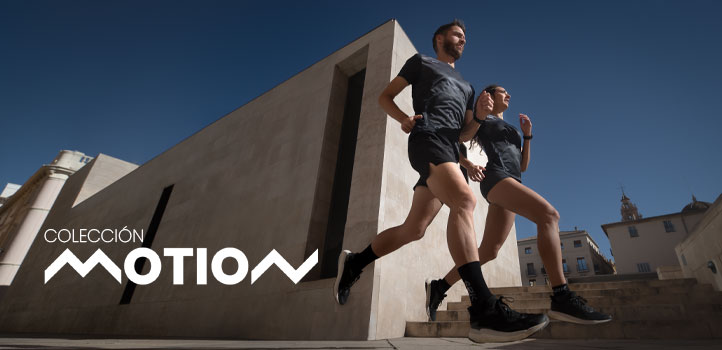Subscribe to our newsletter to find out about all the news and promotions, and automatically receive a welcome discount coupon in your email.
In a previous article on this blog I tried to answer questions about what to eat (and drink) before a competition. Now we are going to see a series of nutritional recommendations to recover from the efforts of a competition. In this article I am going to show you what to eat after a run.
All athletes know that once a competition is over it is really important tolimesit up correctly for recover all those metabolic fuels used in the test, but... what is the proper way to do it?
In this article we are going to see how intakes should be after a demanding competition that has forced us to make an intense and prolonged effort.
What to drink and what to eat after a race?
It is very important to ingestlimeAdequate times in the hours before a competition to obtain optimal sports performance and avoid possible discomfort that prevents you from competing at the best level during the race. But the intake after a physical effort is no less important because there has been wear and tear that can have negative consequences for recovery (and to a certain extent also for health) if it does not favor the replacement of all those levels that are important. .
The importance of knowing what to eat after a race is essential for proper recovery, especially when we talk about the physical efforts associated with racing. running or trail running.

Glucogenic regeneration, the first thing
We will start by talking about glucose, a carbohydrate used as fuel by our body for physical activity and that is stored in the glycogen stores. Due to intense physical activity they usually end up practically empty.
We could say, therefore, that as a first response to what to eat after a race, would have to say that our tolimepost-competition performance should be focused on recuperación of sayings glycogen stores.
The replenishment of glycogen stores is quite slow. To get an idea, in the face of hypoglycemia (decrease in blood glucose commonly called "low sugar") it begins to recover from the first minute of ingesting alimeFoods rich in carbohydrates, such as bread, honey, jam, fruit, sugar... [Yes, we can takelimeSugary snacks considered unhealthy, since at that time we only care about avoiding fainting or possible medical complications]; however, glycogen stores may take time more than 24 hours to recover.
Recommendations for glycogenic regeneration
However, with a series of correct guidelines we can reduce the replacement time of glycogen stores to 12-24 hours. Let's go with some recommendations to achieve glycogenic regeneration:
- Firstly, No. it is convenient train within 48 hours to the competition, unless a low intensity activity is carried out. If we do intense physical activity, the body will continue to demand energy and will prevent what we are ingesting from serving to regenerate glycogen stores.
- consume thelimesnacks rich in carbohydrates during the 24 hours after the race. It is convenient that the intake of alimemeals rich in carbohydrates is carried out after a few 45 minutes after the end of the competition because in this way the recovery will be accelerated. That is, it is not only important whatliments to take, but when to take it is also important.
- The alimefoods rich in carbohydrates They are basic, but it is important to consume them without mixing them with fats and proteins, so that digestion does not slow down and therefore the absorption of nutrients and the filling of glycogenic deposits.
- In addition, given the great satiating power of the alimeFoods rich in protein and fat should be avoided in the first 6 hours after the end of the competition; The explanation of this recommendation is simple: if these are taken atlimeAt times it will be very easy to get satiated quickly, which will mean stopping drinkinglimentos rich in carbohydrates that are going to allow glycogenic recovery.
- But... what tolimeHow many are recommended for glycogenic recovery? Well, for example... fruits, miel, jams, rehydration drinks, potato, pasta, Sweet potato, rice, pan, juices, quince, vegetables, dried fruits...
- All of this in a white version (avoid wholemeal because its digestion is much slower and also its assimilation) and in the case of pasta and rice they must be very well cooked (not al dente), since the integral or little cooked are slower absorption.
- And it's not enough to justlimefoods rich in carbohydrates, you also have to include thelimefoods with high potassium content andliment liquids. For what reason? Well, because the liquid and potassium intake is necessary in glucogenic regeneration.
AlimeFoods rich in potassium and carbohydrates but poor in protein and fat
Many potassium benefits for the organism. It's a very important mineral for health and in addition to being very effective in avoiding muscle cramps (which is why most runners and runners appreciate it), it also helps prevent a wide range of problems such as high blood pressure, constipation, osteoporosis or cardiac arrhythmias.

It is recommended a daily consumption of about 3.500 mg of potassium a day, but in the case of glycogenic regeneration not all the alimePotassium-rich foods are ideal; We will see below a list of alimeFoods rich in potassium and carbohydrates but poor in protein and fat:
- Potato.
- Sweet potato.
- Banana banana.
- Kiwi.
- Dried peaches.
- Raisins.
- Dates
- Watercress.
- Spinach.
- Broccoli.
- Brussels sprouts.
- milk caps
- Scallions.
I hope these recommendations help you to know what to eat after a race.


Text to 42K of :
Ismael Martinez Garcia
Dietitian-nutritionist
Dietitian - Nutritionist from the University of Valencia. Master in Nutrition in performance in endurance/ultra-resistance sports from the Spanish Academy of Nutrition. Collegiate number CV00678 in the College of Dietitians and Nutritionists of the Valencian Community
Diet Valencia
Other entries by Ismael Martínez García
42K · All rights reserved


Comments
Post a first comment for this entry!